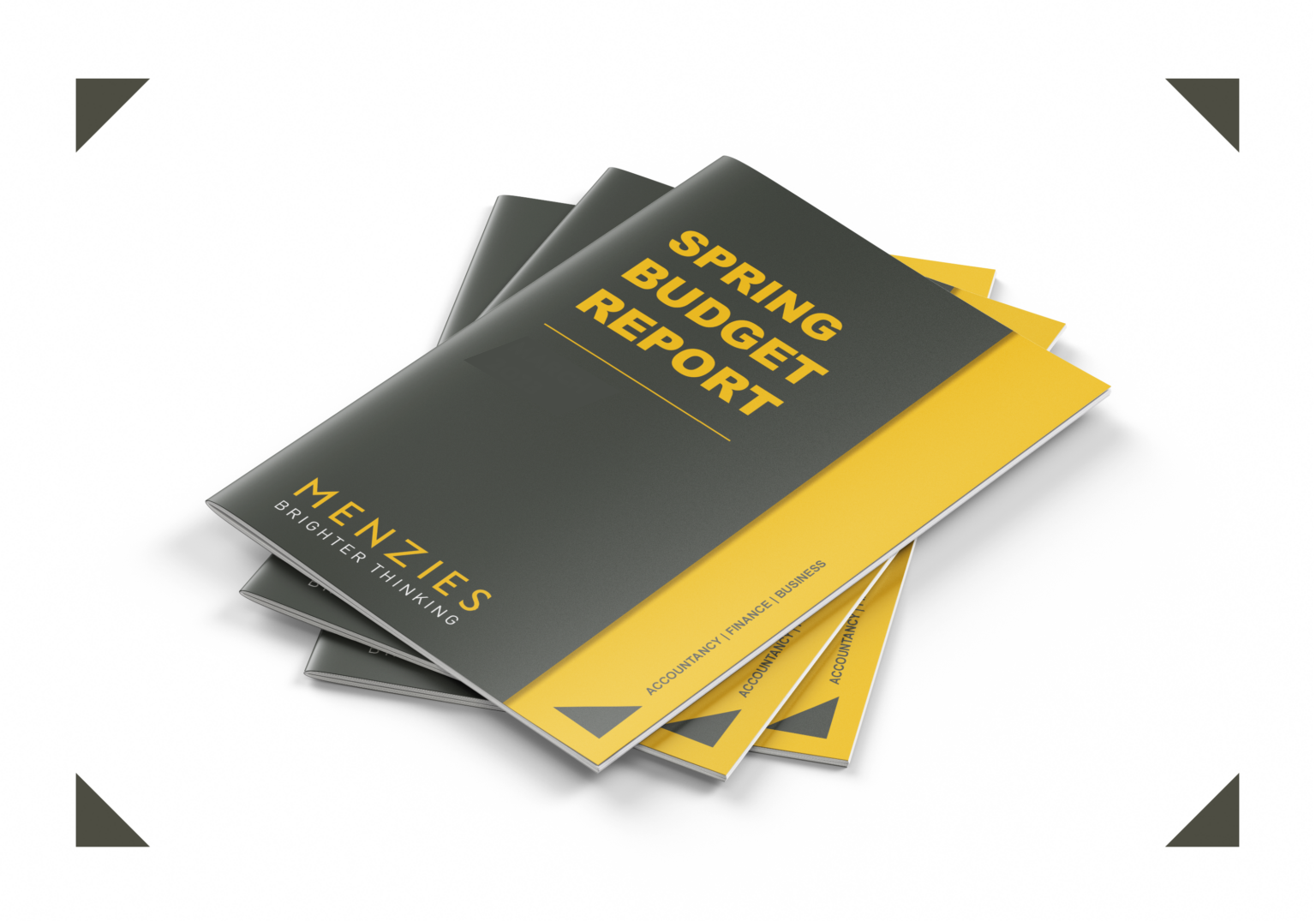Read our Spring Budget 2024 Comments below
The Chancellor, Jeremy Hunt delivered the ‘Spring Budget for Long Term Growth’ with emphasis on increased investment, job creation, improved public services, and tax reductions.

Download our Spring Budget 2024 Report
Download nowSpring Budget commentary
2p reduction in National Insurance contributions
There has been much chatter about tax cuts in the lead up to the Spring Budget, and today the Chancellor lowered National Insurance rates for employees by a further 2p, following on from a previous cut in November. The rate of NI for those who are self-employed will also be cut by 2p.
Richard Godmon, Tax Partner, comments:
“While a further 2p cut to National Insurance contributions is seemingly good news, many still won’t be better off due to the freeze in tax band thresholds. It was disappointing to see no such cut in the NI rate for employer-side National Insurance contributions. This would have been a measure that would have been welcomed by struggling businesses in the retail and hospitality sectors especially.”
Increase in VAT threshold for small businesses
The Chancellor announced he would increase the VAT registration threshold from £85,000 to £90,000 from 1 April – the first increase in seven years, which he claimed would lift tens of thousands of businesses out of paying VAT.
Richard Godmon, Tax Partner, comments:
“The move to enable more small businesses to reclaim VAT will be welcomed by those now included, allowing them to retain more of their income and potentially invest in growth or other aspects of their operations. Yet while this is a step in the right direction, there are many more who would benefit from a higher threshold. SMEs are arguably the engine room of the economy and they must be supported to thrive and invest for growth.”
Non-dom tax regime abolished and to be reformed
The government has announced it will reform the tax break for wealthy foreign residents in the UK who have non-domiciled tax status.
Craig Hughes, Head of Private Client Tax Services, comments:
“The abolition and reform of the non-dom tax scheme seems to have been a largely political decision. The non-dom rules were complicated previously and so arguably reform was needed. However, while this might provide a short-term boost to the Treasury, we also need to consider the long-term impact: these changes may backfire with a sizeable impact to the UK economy as people may choose to relocate elsewhere.
Firms, especially in the City, are already facing intense competition in the race for global top talent, and the non-dom tax status has thus far been a powerful incentive to work in the UK. The Chancellor said himself in 2022 that these individuals could just as easily choose to live in other countries and contribute to their businesses and economies – and now they may well do so.
It also largely remains to be seen how rules around Inheritance Tax (expected to apply after 10 years of UK residency) will shift to accommodate non-dom rule changes – this will be significant to many.”
New pension measures and ‘British ISA’
The Chancellor announced that he would unlock more pension fund capital, give new powers to the pensions regulator and FCA, and make sure there are vehicles that make it easy for pension funds to invest in UK growth opportunities. He also announced a reform to the ISA system “to encourage more people to invest in UK assets”. The new British ISA will allow an additional £5,000 annual investment for investments in UK equity with all the tax advantages of other ISAs.
Craig Hughes, Private Client Tax Partner, comments:
“An infusion of capital into British companies through pension funds and the new British ISA could undoubtedly foster greater economic growth, particularly for SMEs. However, the devil will be in the detail here, and the specifics remain to be seen. Will the new ISA integrate into the existing ISA framework or become a standalone product, for example? Companies may find it more manageable if structured as a separate product, allowing for efficient investment management.”
Permanent full expensing for leased assets
In the Autumn Statement, the Chancellor announced permanent “full expensing”, a £10bn tax cut for businesses. He today announced his intention to publish draft legislation for full expensing to apply to leased assets.
Andrew England, Tax Partner, comments:
“It was disappointing that the Autumn Statement didn’t include leased assets in the permanent full expensing regime announcement, so it is good to see that it has now been considered following representations. There remains some vagueness around the timing of its implementation, however, with the Chancellor claiming it would be brought in ‘as soon as affordable’. This is a crucial form of tax relief for many businesses and so must come into force this year.
The leasing exemption from claiming full expensing also currently applies to companies who commercially protect and own their assets at a group level and effectively ‘lease’ them internally. This must be dealt with as quickly as possible as currently, these companies are at a significant disadvantage with regards to tax relief to a standalone company.”
Download our full Spring Budget report below for the details.
Read our Spring Budget Commentary by sector:
Spring Budget 2024 Predictions & Wish List
Technology
Significant announcements are usually reserved for the autumn budget, but with a general election coming up in 2024 will we see any big announcements from Chancellor Jeremy Hunt this March?
Property & Construction
See our Property & Construction Team’s predictions and wish list for the Chancellor’s Spring Budget 2024 below.
Hospitality & Leisure
As we approach the Spring Budget on 6 March 2024, the UK Hospitality and Leisure sector faces ongoing challenges. Read our H&L team’s predictions and wish list in the article below.
Financial Services
Read our Spring Budget 2024 Predictions & Wish list for the Financial Services Sector below.
Manufacturing
Andrew England highlights what we could expect from the Chancellor’s Spring Budget 2024 this year, and what could benefit the Manufacturing sector.
Retail
Martin Hamilton highlights what we could expect from the Chancellor’s Spring Budget 2024 this year, and what could benefit the Manufacturing sector.
Transport & Logistics
Following on the back of an Autumn Statement aimed at businesses, and with an upcoming election at some point in 2024, there’s an expectation that the chancellor will be doing what he can to entice voters, and therefore expect this budget to be more focused on personal tax elements.
Private Client
See our Spring Budget 2024 Predictions and Wish List for from our Private Client Team below.














